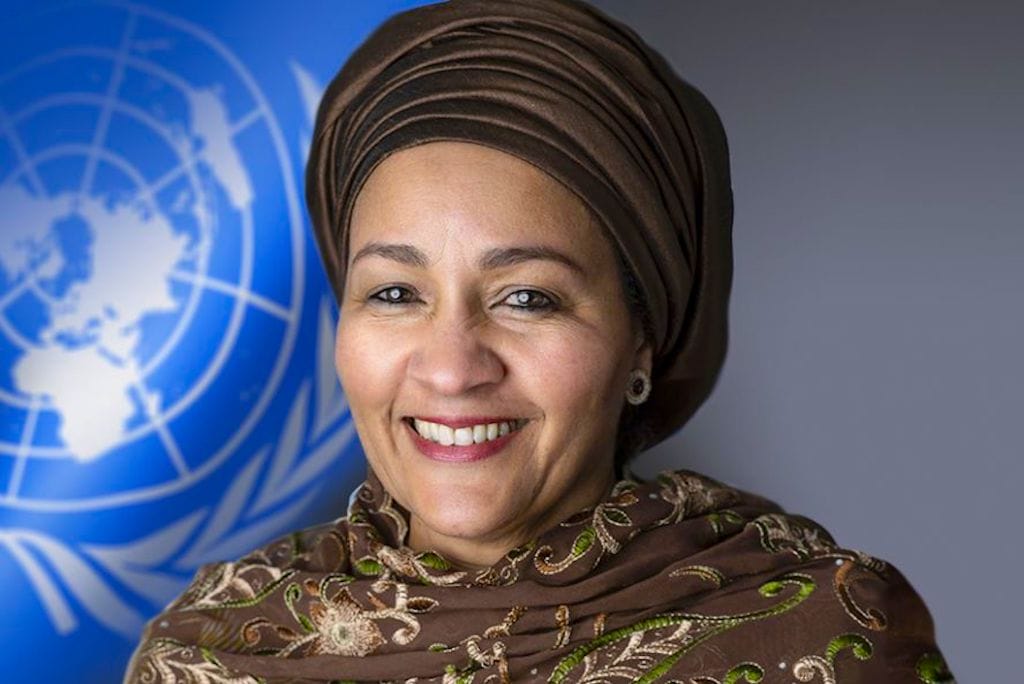As Deputy Secretary-General of the United Nations since 2017, Amina J. Mohammed has become a driving force behind the world’s most ambitious and urgent agenda: the pursuit of sustainable peace, inclusive prosperity, and environmental resilience for all nations.
Born in 1961 in Liverpool, England, to a Nigerian father and British mother, Mohammed was raised in Nigeria and educated in both Nigeria and the United Kingdom. Her early academic pursuits in project management and architecture laid a practical foundation for what would become a career rooted in strategy, systems thinking, and people-centered design.
She started her professional journey in the private sector, designing educational and health infrastructure across Nigeria, but it wasn’t long before her attention turned to public policy and global equity.
Her transition into public service was marked by an unrelenting drive to effect meaningful change. As the national coordinator for the UN Millennium Project in Nigeria, she worked closely with global experts to localize the Millennium Development Goals (MDGs), pioneering efforts that would bring data-driven development planning to the forefront of Nigerian governance. Her integrity, intellect, and results-oriented leadership saw her appointed as Special Adviser to President Olusegun Obasanjo on MDGs, where she helped steer Nigeria’s strategies on poverty alleviation, public health, and education reform.
But Mohammed’s defining contributions came on the global stage. From 2012 to 2015, she served as the Special Adviser to UN Secretary-General Ban Ki-moon on Post-2015 Development Planning. It was in this pivotal role that she emerged as one of the chief architects of the Sustainable Development Goals (SDGs), a historic blueprint that replaced the MDGs and set 17 interconnected goals to guide the world through the challenges of inequality, climate change, and economic development.
Her ability to forge consensus between governments, civil society, and multilateral institutions during the SDG negotiations solidified her reputation as a diplomat of rare skill, visionary, yet grounded in the realities of policy implementation.
In 2015, she was appointed Nigeria’s Minister of Environment, where she oversaw landmark environmental reforms, led the country’s climate change efforts, and coordinated the long-awaited cleanup of Ogoniland, an environmentally devastated region in the Niger Delta. Her tenure reflected a fierce commitment to environmental justice, transparency, and the mobilization of marginalized voices.
When António Guterres was appointed UN Secretary-General in 2017, Amina J. Mohammed became his first major appointment, assuming the role of Deputy Secretary-General of the United Nations. As the UN’s second-in-command, she leads on the implementation of the 2030 Agenda for Sustainable Development, oversees UN reform across 131 country offices, and acts as a global envoy for multilateral cooperation and equity.
Under her leadership, the UN has pushed forward on key issues like climate action, gender equality, youth inclusion, and pandemic recovery. Whether addressing the UN General Assembly or negotiating humanitarian access in fragile states, Mohammed brings a distinctive blend of pragmatism and moral clarity to the world’s most complex crises.
Beyond her formal roles, she is a global thought leader, educator, and mentor. She serves as an adjunct professor at Columbia University and sits on several advisory boards, including those of the Global Partnership for Education and the Bill and Melinda Gates Foundation. She has been recognized globally for her leadership and influence, including her inclusion on the BBC’s 100 Women list, the Global Citizen World Leader Prize, and Nigeria’s national honor of Grand Commander of the Order of the Niger.
Despite her towering responsibilities, Amina J. Mohammed remains grounded in her identity as a mother and grandmother. She often speaks about the importance of empathy, listening, and moral leadership in diplomacy, qualities that continue to define her impact at the highest levels of global governance.

